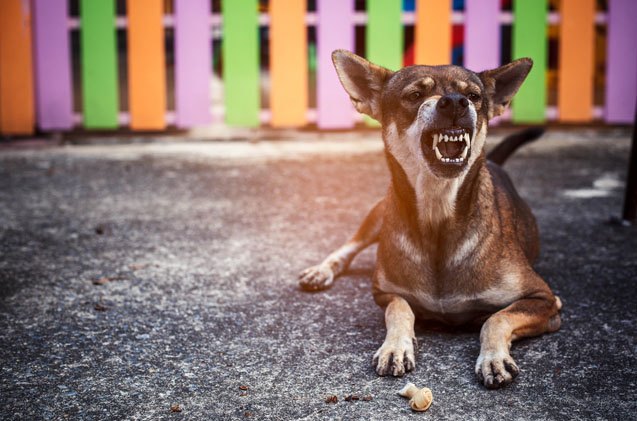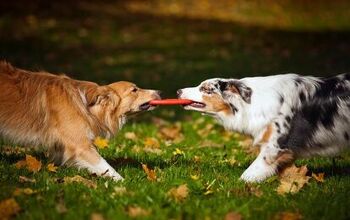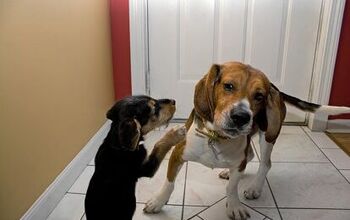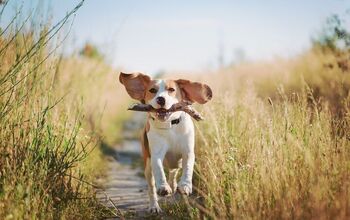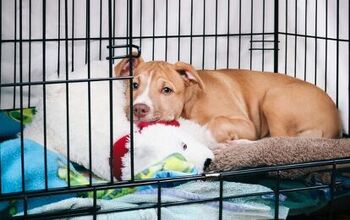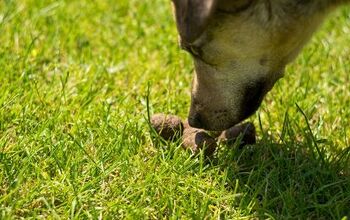6 Tips for Managing a Territorial Dog

What is the difference between a dog that barks at anything that comes into the yard and one who couldn’t care less? The first dog most likely has territorial instincts, while the second dog does not. Territorial instincts are a natural thing for a dog to have but, if taken too far, they can be a problem. Keep reading to learn more about worrisome territorial tendencies and how to manage them.
Is Your Dog’s Territorial Behavior a Problem?
Some dog breeds have naturally territorial and protective tendencies, while others do not. The signs of a territorial dog are obvious – they may include things like growling, snarling, barking, snapping, lunging, and even biting.
Different dogs exhibit different levels of aggression as well. Some dogs simply bark when a person or another dog enters their perceived territory, but some dogs take things to the next level. A highly aggressive dog might not just bark at the person or animal posing a perceived threat – he may go so far as to chase down and attack the offender.
Related: Should You Bring Your Nervous or Reactive Dog to the Dog Park?
A dog’s territorial behavior can be attributed to a number of different factors including poor socialization, sexual maturation, underlying medical conditions, inbreeding, and more. If your dog exhibits territorial behavior, it is a good idea to address the issue before it becomes a major problem. The last thing you want is for your dog to attack someone.
Take the time to observe your dog’s behavior and to identify the triggers. Once you have gathered some information about your dog’s behavior, you can take your concerns to your vet or to an animal behaviorist for help in determining the underlying cause for your dog’s behavior.
Tips for Dealing with Territorial Behavior in Dogs
Once you have identified the cause for your dog’s territorial behavior, your next step is to work with him to reduce his territorial aggression. Here are seven simple tips you can use:
- Revisit basic obedience training. You can’t hope to change your dog’s behavior if you aren’t able to control him. Basic obedience is the foundation for controlling and changing your dog’s behavior so make sure he has a grasp of basic commands first.
Related: Introducing A New Dog Into Your Multi Dog Household
- Reward good behavior. An important part of changing your dog’s negative or undesired behavior is rewarding him for desired behaviors. You can try using basic commands like “come” or “stay” when your dog starts to exhibit territorial behaviors then reward him when he does well.
- Give him plenty of exercise. A dog that doesn’t get enough exercise is more likely to develop and exhibit problem behaviors, so make sure your dog’s needs for exercise are met.
- Keep your dog’s mind busy. If your dog has nothing to do but stare out the window and bark at passersby, you’ll have a hard time changing his behavior. Try giving your dog some interactive puzzle toys or work with him to learn a dog sport.
- Prevent the undesired behavior. If your dog loves to hang out by the front window and bark at everything that passes, prevent him from getting to the window. You can rearrange the furniture to block the window or just start keeping your dog in a different room.
- Try some anti-anxiety gear. For many dogs, territorial behavior is a product of anxiety. To help your dog feel more calm and secure at home, try some anti-anxiety gear like a ThunderShirt or a calming collar that releases calming pheromones.
Every dog is unique, so your dog’s territorial behavior might be different from another dog. Even so, it is important that you take the time to observe your dog’s behavior in order to determine whether it has the potential to cause a problem and, if so, you need to take steps to fix it.

Kate Barrington is the loving owner of two cats (Bagel and Munchkin) and a noisy herd of guinea pigs. Having grown up with golden retrievers, Kate has a great deal of experience with dogs but labels herself a lover of all pets. Having received a Bachelor's degree in English, Kate has combined her love for pets and her passion for writing to create her own freelance writing business, specializing in the pet niche.
More by Kate Barrington



